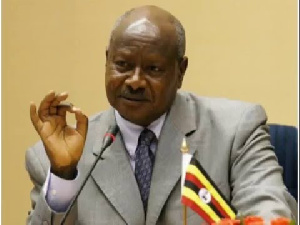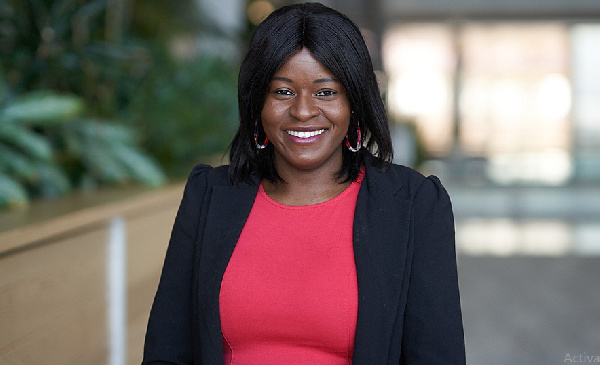Museveni: If I lose fairly I will go

President Museveni Wednesday said he would “accept the results” if he lost the January 14, 2021 election.
“Uganda is not my house. If I lose election I will go to my house and do my own thing if the views of Uganda don’t want me to help them with their issues…I go and deal with my personal issues very happily,” Mr Museveni teld CNN’s Christiane Amanpour.
President Museveni further said he deserves a shot at another five-year term partly because his government helped 80 of Uganda’s current population (45 million) survive child hood diseases.
“And we have given them education. We have also given them a base for the economy and we have a good budget and we can support them (youth),” Mr Museveni added.
Ugandans go to the polls on January 14, with 10 other candidates challenging incumbent President Yoweri Museveni, commander-in-chief of the military, who has been in power since 1986, a tenure marked by an assault on democracy, critics say.
Mr Museveni has been president longer than most Ugandans have been alive, but the 76-year-old leader shows no sign of retiring as he seeks yet again to extend his rule.
Shortly after Mr Museveni took power in 1986, ending years of bloodshed and chaos under murderous tyrants, the young president mused that leaders overstaying their welcome lay at the heart of Africa’s problems.
But nearly four decades later the introspection is gone and Museveni once hailed in the West as a model African leader committed to good governance ranks among the world’s longest-serving and, increasingly, authoritarian rulers.
His genial face and penchant for folksy parables belie a past as a wily guerrilla fighter and ruthless political survivor.
In his 35-year reign, Museveni has fused state and party so effectively, and crushed political opposition so totally, that any serious challenge to either him or his National Resistance Movement (NRM) is impossible.
Many see his return to office for a sixth straight term after January 14 elections as a foregone conclusion.
Three-quarters of Ugandans are under 30, so most of the country has never known anyone else in charge.
At 76 -although some opponents say he is older – Mr Museveni says he is fighting fit, occasionally performing pushups before crowds and jogging in his office.
In 2020, he joined Instagram and added a childhood name, Tibuhaburwa, to his official title.
Unbound by Uganda’s constitution it was amended twice to remove presidential term and age limits many believe Museveni, who never speaks publicly of succession and has broken past promises to stand down, plans to rule for the rest of his days.
Staying put
“He will not leave until he has completed his mission of liberating Uganda and Africa… It’s an illusionary and delusional mindset, of course. But he looks at himself as some sort of messiah,” said Moses Khisa, assistant professor of political science at North Carolina State University.
In long, meandering speeches often laced with peasant folklore – he was raised by cattle herders in western Uganda – Mr Museveni has appealed for more time, likening himself to a farmer leaving a plantation just as it starts bearing fruit.
Rarely too does “the old man who saved the country” miss a chance to hark back to his heroics in the bush wars — sometimes exchanging his trademark safari hat and yellow shirt for camouflage fatigues to drive home the point.
It is a favourite reference for the proud military man but one of dwindling currency, given most Ugandans are not old enough to remember the relative peace and stability that followed the horrors of Idi Amin and Milton Obote.
British journalist William Pike, who interviewed Museveni in 1984, described a man then well-admired with a “faraway look in his eyes as he spoke, the look of a dreamer, a revolutionary”.
Museveni studied in Dar es Salaam, Tanzania, in the 1960s when the university acted as a kind of revolutionary finishing school for anti-colonialists.
“He was intensely serious but showed flashes of humour. He encouraged debate although his officers were deferential,” wrote Pike in his 2019 book “Combatants: A memoir of the Bush War and the press in Uganda.”
“Museveni’s confidence infected everyone.”
This extended to the international community, which saw promise in Museveni’s early strides on economic growth, poverty alleviation and combating HIV/AIDS.
Drift to dictatorship
A cunning strategist, Museveni also positioned himself as something of an elder statesman and peacemaker in a volatile region – even as his forces were marauding in eastern Congo and backing rebels in other war-torn corners.
His deployment of troops to fight jihadists in Somalia, and open door policy to refugees, won favour from foreign donors who critics say turned a blind eye to his abuses at home and warmongering abroad.
“Museveni has always been brutal, but he’s always had to play this game with the West, so that he continues to get support,” Helen Epstein, author of “Another Fine Mess: America, Uganda, and the War on Terror”, told AFP.
But as the years ticked by the contemplative young rebel leader gave way to an ever-more erratic and uncompromising head of state.
“There were times when Museveni was a persuasive person. He would win over you ideologically, and through discourse. He no longer does a whole lot of that. He increasingly has to rely on money and force,” Khisa said.
Despite the rampant corruption, economic mismanagement, misuse of public funds, and discriminatory legal systems listed by the State Department, Uganda received at least $434 million in US foreign assistance in 2020.
A State Department Spokesperson said the department is “paying close attention to the actions of individuals and organizations who seek to impede the ongoing democratic process…”
Museveni had promised to retire to his cherished herd of long-horned Ankole cattle but instead has outlasted every ruler on the continent bar Teodoro Obiang Nguema of Equatorial Guinea and Paul Biya of Cameroon.
Source: monitor.co.ug





